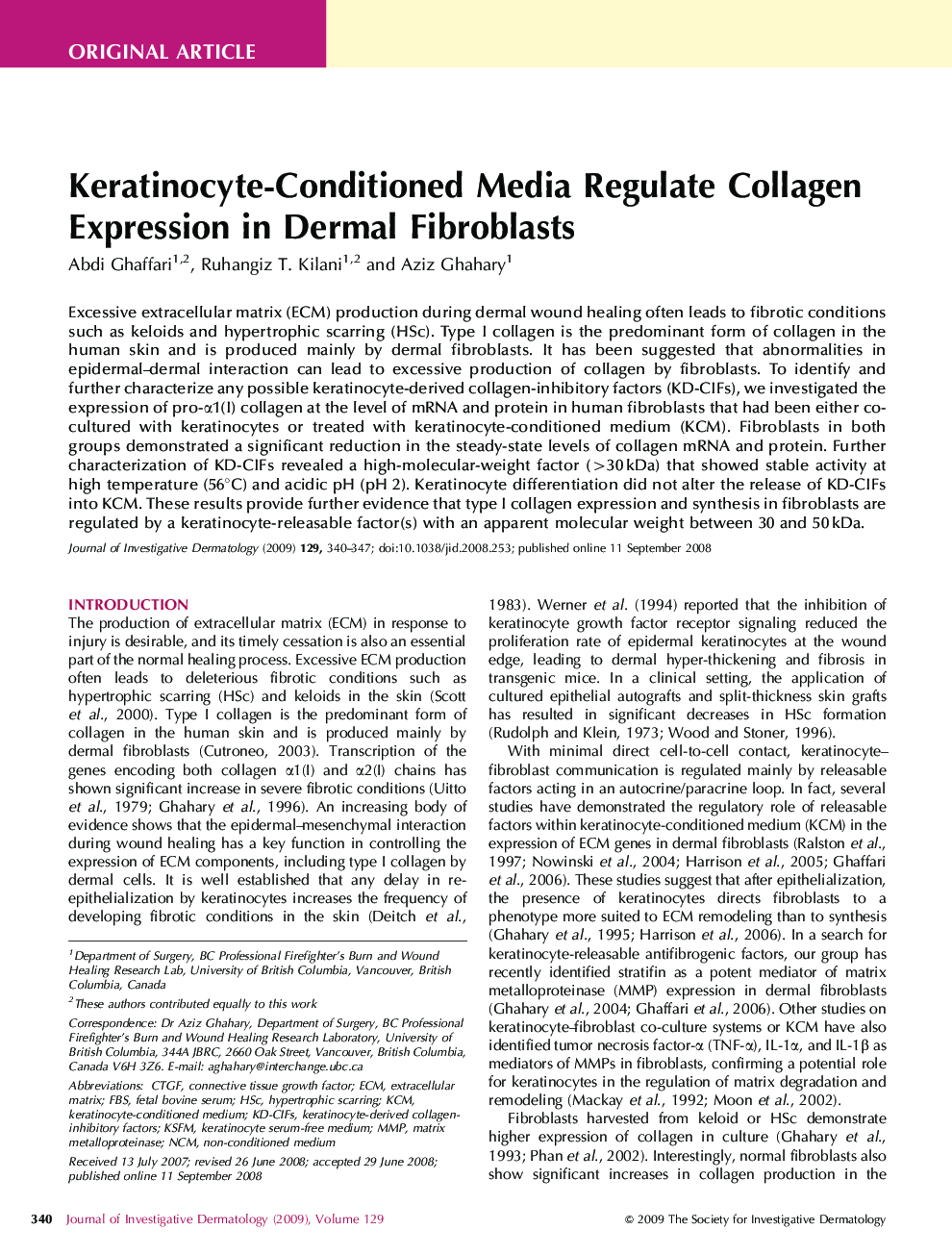| Article ID | Journal | Published Year | Pages | File Type |
|---|---|---|---|---|
| 3217252 | Journal of Investigative Dermatology | 2009 | 8 Pages |
Excessive extracellular matrix (ECM) production during dermal wound healing often leads to fibrotic conditions such as keloids and hypertrophic scarring (HSc). Type I collagen is the predominant form of collagen in the human skin and is produced mainly by dermal fibroblasts. It has been suggested that abnormalities in epidermal–dermal interaction can lead to excessive production of collagen by fibroblasts. To identify and further characterize any possible keratinocyte-derived collagen-inhibitory factors (KD-CIFs), we investigated the expression of pro-α1(I) collagen at the level of mRNA and protein in human fibroblasts that had been either co-cultured with keratinocytes or treated with keratinocyte-conditioned medium (KCM). Fibroblasts in both groups demonstrated a significant reduction in the steady-state levels of collagen mRNA and protein. Further characterization of KD-CIFs revealed a high-molecular-weight factor (>30 kDa) that showed stable activity at high temperature (56°C) and acidic pH (pH 2). Keratinocyte differentiation did not alter the release of KD-CIFs into KCM. These results provide further evidence that type I collagen expression and synthesis in fibroblasts are regulated by a keratinocyte-releasable factor(s) with an apparent molecular weight between 30 and 50 kDa.
